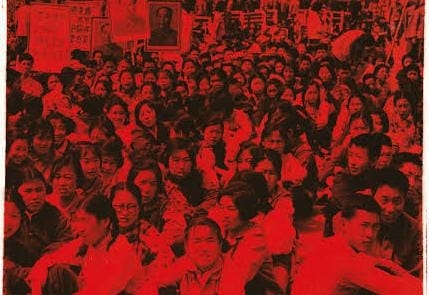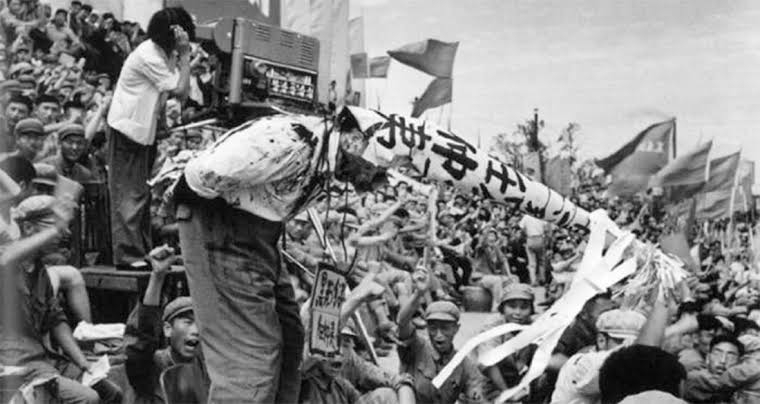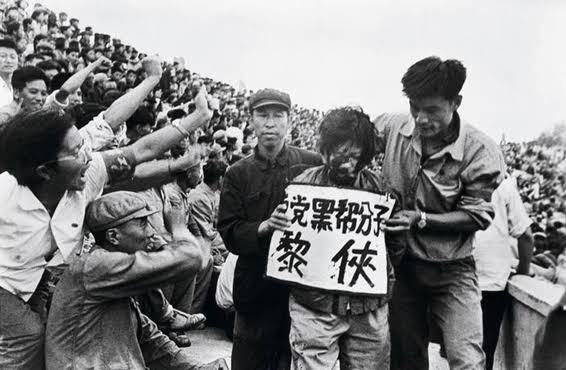Cultural Revolution: Unmasking the Horrors of Communist Terror

From 1966 to 1976, China experienced the Cultural Revolution, a time of great societal and political unrest that has had a lasting impact on the nation’s history. Started by Chairman Mao Zedong, the movement sought to eliminate capitalist and traditional influences from Chinese society and revive the communist ideology.
In the aftermath of the Leap Forward (1958-1962), Mao perceived China as moving away from his goal of establishing a strictly communist society. The implementation of pragmatic policies to recover from the famine, with a focus on economic development rather than ideology, appeared to resemble a shift towards a Soviet-style model, which Mao did not approve of.
Within the Communist Party, Mao observed the ascendance of a new group of leaders who championed these pragmatic measures. The possibility of being marginalized and the potential dilution of his revolutionary vision worried him.
The Cultural Revolution became a way to purge these rivals and reassert his dominance within the Party. He held the view that the enthusiasm for revolution in China was weakening. The struggles and sacrifices that paved the way for the Communist triumph appeared far removed.
Intending to rekindle the revolutionary spirit, he focused on the youth, as he believed they would be the most receptive to his ideology. Mao’s cult of personality was further merged through the Cultural Revolution.
Mao made sure that his image stayed prominent in the movement by rallying the Red Guards around his ideology and quotes from the “Little Red Book.”
The Cultural Revolution unfolded in chaotic phases. Mao mobilized the Red Guards; student radicals are empowered to identify and punish those deemed “counter-revolutionary.” These young people, armed with Mao’s ideology and the infamous “Little Red Book” of his quotations, unleashed a wave of violence and destruction. 
Schools and universities were shut down, intellectuals and artists persecuted, and traditional artifacts and religious sites destroyed in the name of eradicating the “Four Olds” – old ideas, culture, customs, and habits.
But the Red Guards’ rampage quickly spiralled out of control. Factions emerged, power struggles ensued, and violence became commonplace. Public humiliation, torture, and executions became chilling realities.
Millions were denounced, imprisoned, or sent to labor camps. Social fabric of China is torn apart, as families turned against each other, and fear permeated every aspect of life. The later years of the Cultural Revolution saw a shift in tactics. The military was deployed to restore order, leading to further factional struggles.
After Mao’s death in 1976, the movement finally sputtered out. With the arrest of the Gang of Four, the Cultural Revolution officially ended. Under Deng Xiaoping’s leadership, China embarked on a period of reform, acknowledging the Cultural Revolution’s devastating impact.
In essence, Mao launched the Cultural Revolution to achieve several goals: purge rivals within the Party, prevent China from deviating from his communist vision, rekindle the revolutionary spirit, and solidify his own position as the ultimate leader. However, the methods employed and the chaotic nature of the movement resulted in a period of immense destruction and suffering.
The scars left by the Cultural Revolution remain deep. Estimates of the death toll vary widely, ranging from one to two million. The destruction of cultural heritage and the stifling of intellectual discourse were immeasurable blows, and the movement left a generation traumatized and disillusioned.
However, the Cultural Revolution also presents valuable lessons. It serves as a stark reminder of the dangers of unchecked political power and the devastating consequences of fanaticism. It highlights the importance of intellectual discourse, cultural preservation, and the rule of law.
The legacy of the Cultural Revolution is one of complexity and contradiction. While it aimed to create a new, egalitarian China, it instead led to a period of violence and destruction.
As China continues on its path to economic and social development, understanding the Cultural Revolution remains crucial. It serves as a constant reminder of the importance of moderation, reason, and respect for human rights.
Article by
Pradeep Shrivastava
Author, Columnist
Software Consultant